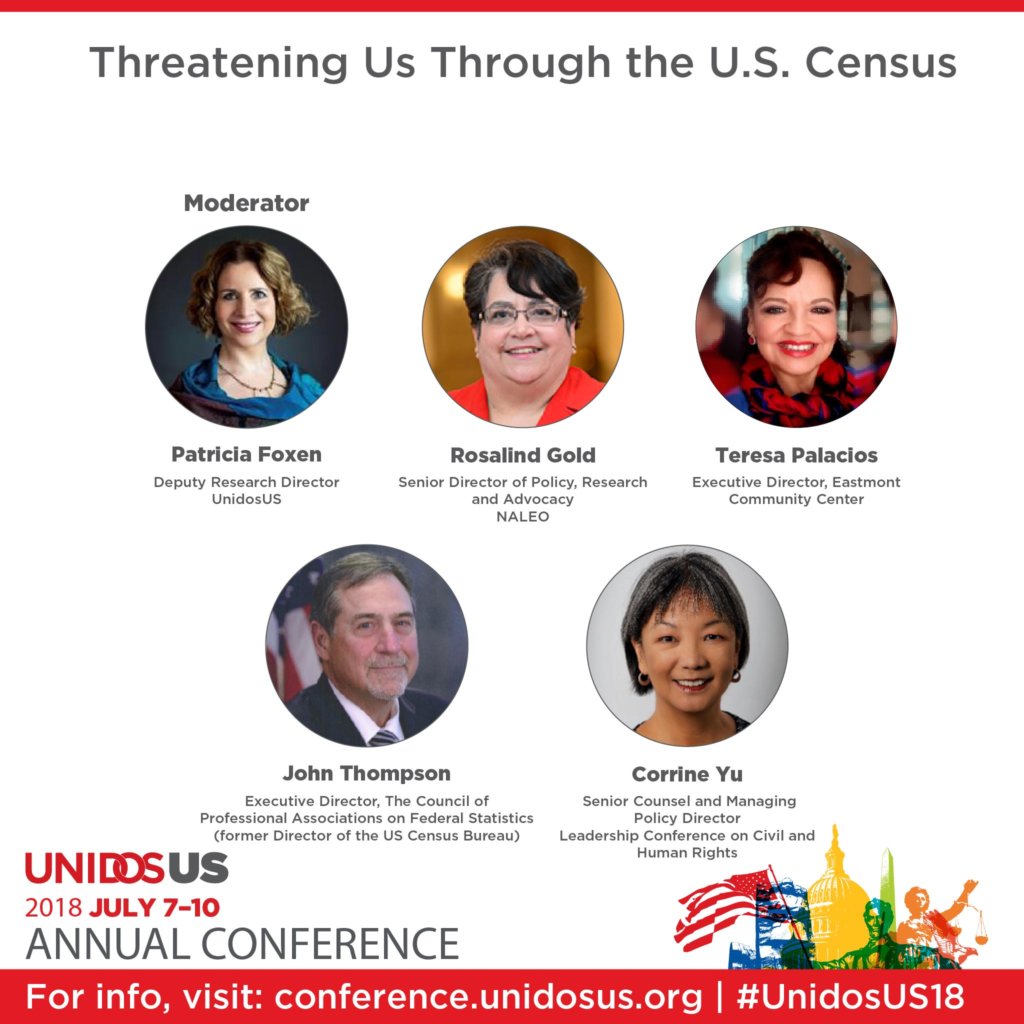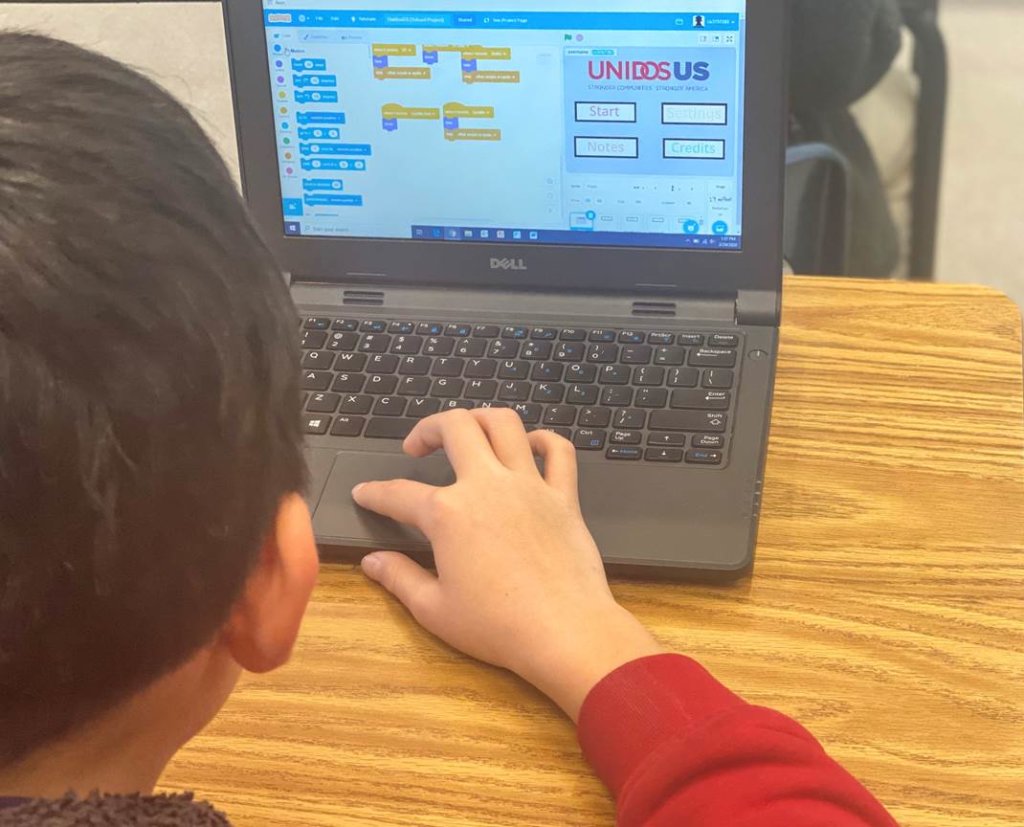Threatening us through the US Census
We must make sure that everyone counts
The Constitution mandates a “count of all persons” to determine not only an accurate population count of the United States, but also to determine accurate political representation.
It is not a “count of all citizens”—it is a “count of all persons.”
Keep up with the latest from UnidosUS
Sign up for the weekly UnidosUS Action Network newsletter delivered every Thursday.
It’s clear that the U.S. Census is vital to our democracy. And as we get closer to the 2020 census, there are two key issues that are relevant to the Hispanic community.
The first issue pertains to the 2020 census asking separate questions about Hispanic identity (one question for ethnicity and another for race). This likely means that ‘some other race’ will become the second biggest group in the 2020 census, and research suggests that the majority of people who self-identify as “some other race” are Latino.
The second issue is that the Trump administration wants to include a question on citizenship. There is no evidence to suggest this is a relevant or effective question, making its inclusion on the response form suspect. This is a question far more dangerous than it may initially appear, and it’s likely to deter immigrants—as well as U.S. citizens who live in mixed immigration status families—from responding to the census.
This could lead to Latinos being underrepresented in the 2020 census, which has the potential to impact political representation, voting rights, and allocations of funding for health, education, and housing programs.
In this difficult political time, UnidosUS is dedicated to defending and advancing the rights of the Latino community, and this includes speaking out about the importance of the census, and why it’s important to push back against this attempt to undercount members of our community. This was the focus of a workshop held at the 2018 UnidosUS Annual Conference earlier this month.

“Counting every person in the United States is extremely difficult under normal circumstances,” according to Corrine Yu, managing policy director at The Leadership Conference on Civil and Human Rights and The Leadership Conference Education Fund.
Rosalind Gold, Senior Director of Policy, Research and Advocacy at NALEO reminded the audience that the 2020 Census is still two years away, which means the issues that have cropped up related to it are on-going. In particular, she noted that there are several outstanding lawsuits related to the citizenship question.
“Billions of dollars of funding are allocated on the basis of Census data,” Gold told the audience. “If we don’t have that data correct, then our communities won’t get the resources they need.”
POTENTIAL FOR LONG-TERM CONSEQUENCES
“If the census in 2020 is not representative, this could be with us for 10 years, until the 2030 census,” said John Thompson, Former Census Director and Executive Director of The Council of Professional Associations on Federal Statistics.
The 2020 census has implications for the reapportionment of congressional districts, as well as the allocation of more than $600 billion federal funds each year. It’s used to support business investment in local communities, and it’s used as control data for virtually every demographic survey produced across the country.
Programs that could be affected by census funding include: SNAP, Medicare, the National School Lunch Program, the Children’s Health Insurance Program, and more.
 Teresa Palacios, Executive Director of the Eastmont Community Center in East Los Angeles, addressed the difficulties in getting the word out about the impact of the census. She noted that families she regularly interacts with aren’t connecting the dots.
Teresa Palacios, Executive Director of the Eastmont Community Center in East Los Angeles, addressed the difficulties in getting the word out about the impact of the census. She noted that families she regularly interacts with aren’t connecting the dots.
“They don’t make the connection that not being counted can affect their own household, their kids,” Palacios said.
The undercount for young Latino children in the 2010 census was at 7.1%—already higher than the undercount rate of 4.3% of young non-Latino children. Five states accounted for 72% of the undercount: California, Texas, Florida, Arizona, and New York.
RESPONSIBILITY TO EDUCATE
“We represent our communities and we have a responsibility to educate them,” Palacios said, a sentiment that was echoed by the panelists.
For example, one of the biggest misconceptions mentioned by panelists—and by the audience—is that there is a concern in the community that data reporting citizenship could be shared with the authorities and lead to deportation.
However, the Census Bureau is prohibited from sharing data with any other agency. In fact, the Bureau’s employees are required to take an oath promising they will keep the data confidential. If that oath is broken, it could lead to a fine of $250,000, as well as jail time. However, this remains a fear that cannot be dismissed.
Adding a question on citizenship to the #2020census is unnecessary and could have far-reaching consequences for our country. UnidosUS expert @CMartinezDC weighs in: https://t.co/fV1p6945Sz
— UnidosUS (@WeAreUnidosUS) April 2, 2018
Palacios explained how messages from advocates may sometimes be confusing to members of the community: “They’re telling you to keep the door closed if ICE comes. But then telling you to open the door so that you can be counted,” she said.
One audience member brought up the example of Ancestry.com’s use of census records to highlight the confusion about the census’s confidentiality. Thompson was quick to remind the audience that census records do not become public until 72 years have passed, meaning that there is no danger that this data—accompanied with any identifying information—may be revealed.
Having accurate information like this is critical, especially for reaching members of the Latino community. Many are “hard-to-count”, given that they may be lower-income, immigrants, individuals with low-English language proficiency, people who live in rural areas, or very young children, which Latino families are less likely to count in their responses to census workers.
But if we focus on keeping our community informed and encouraging everyone to complete the response forms, we can help make sure that we are all counted.
By Stephanie Presch, Content Specialist, UnidosUS




